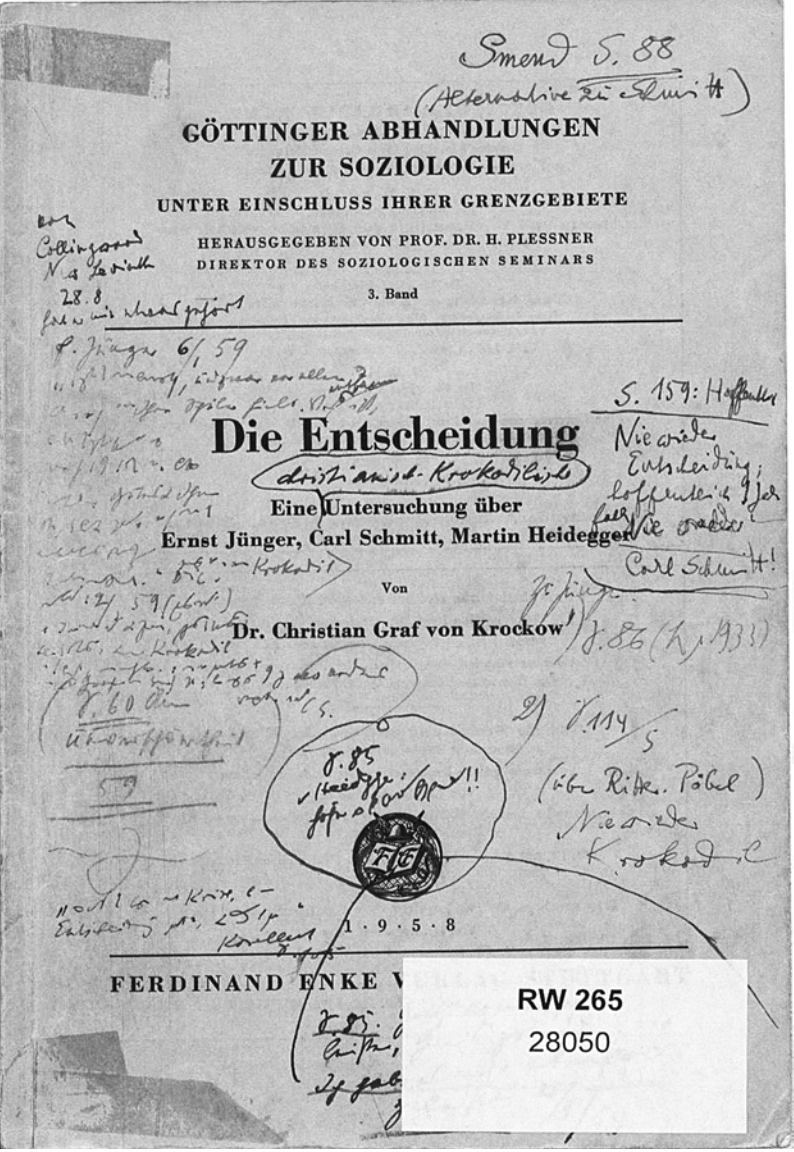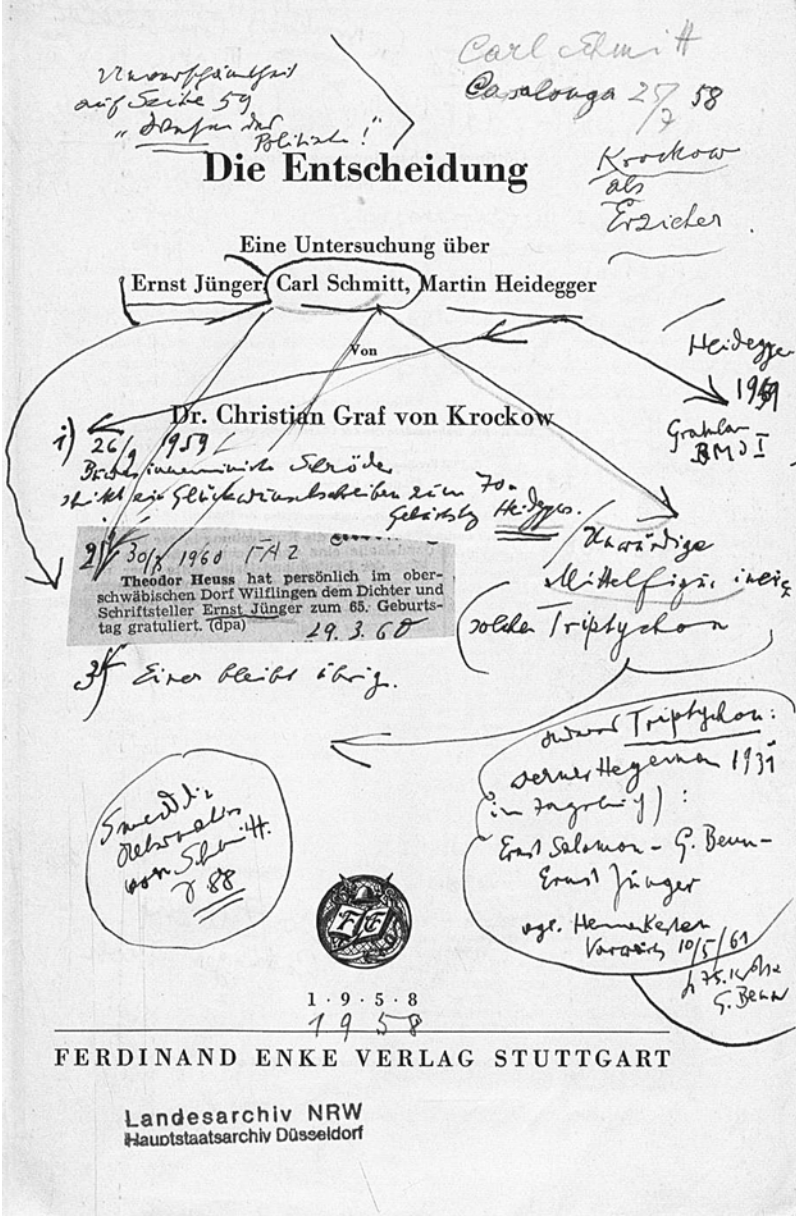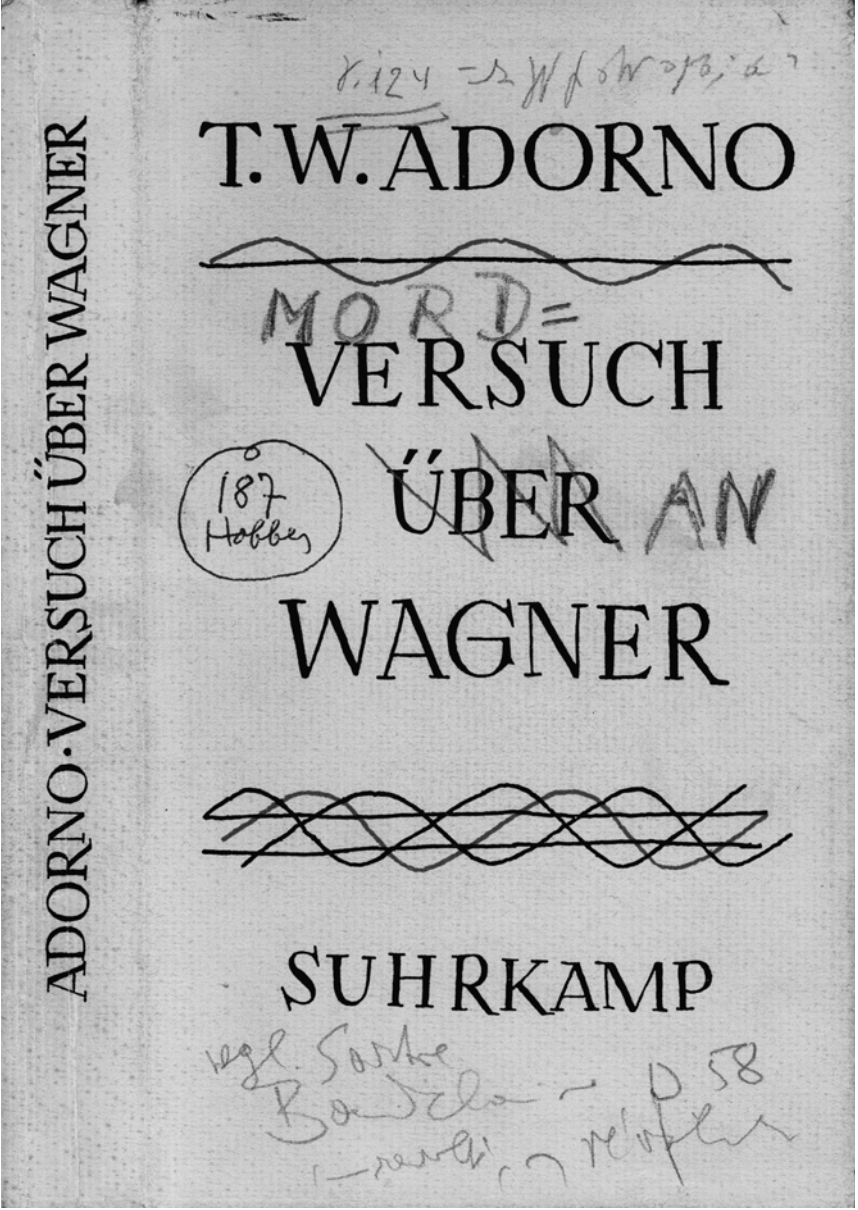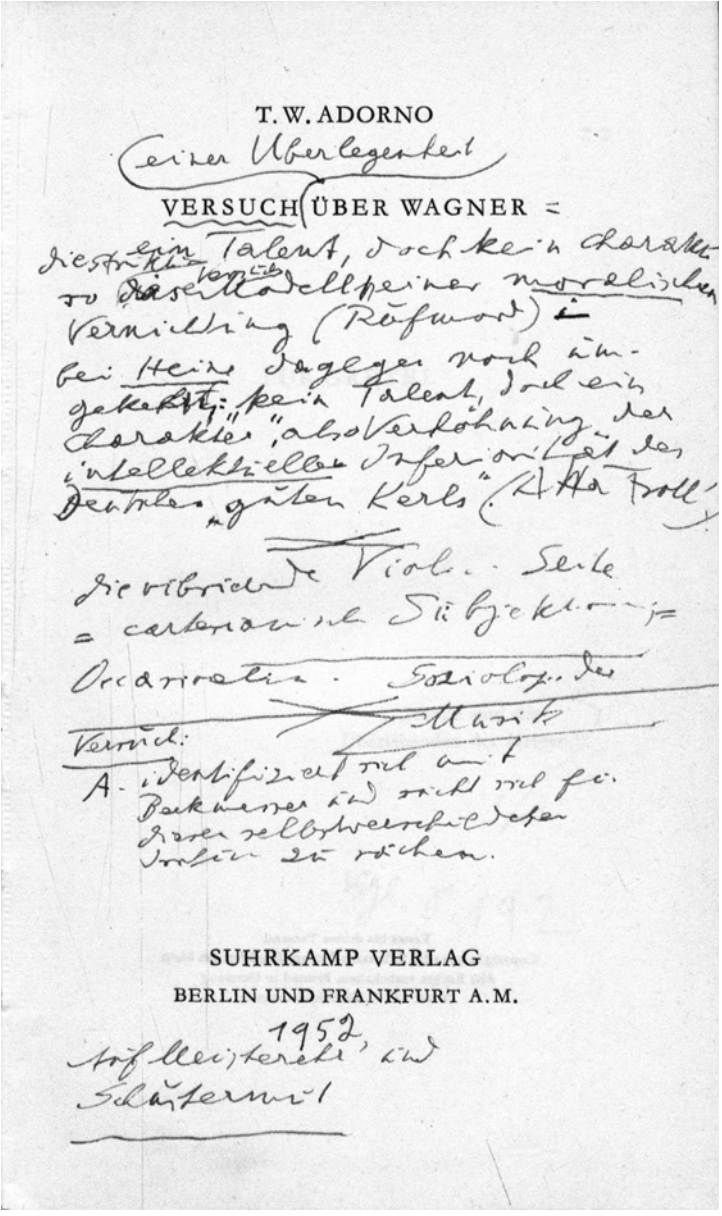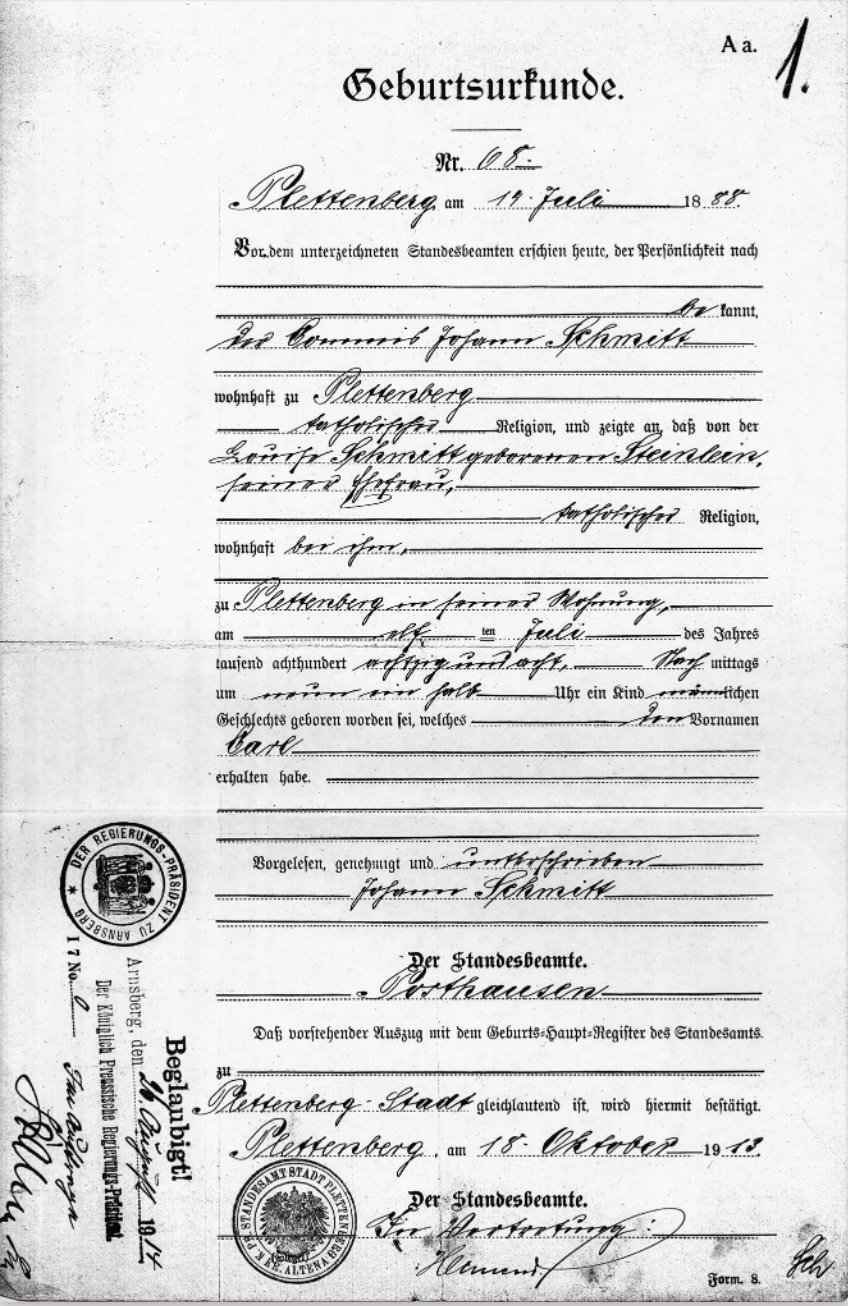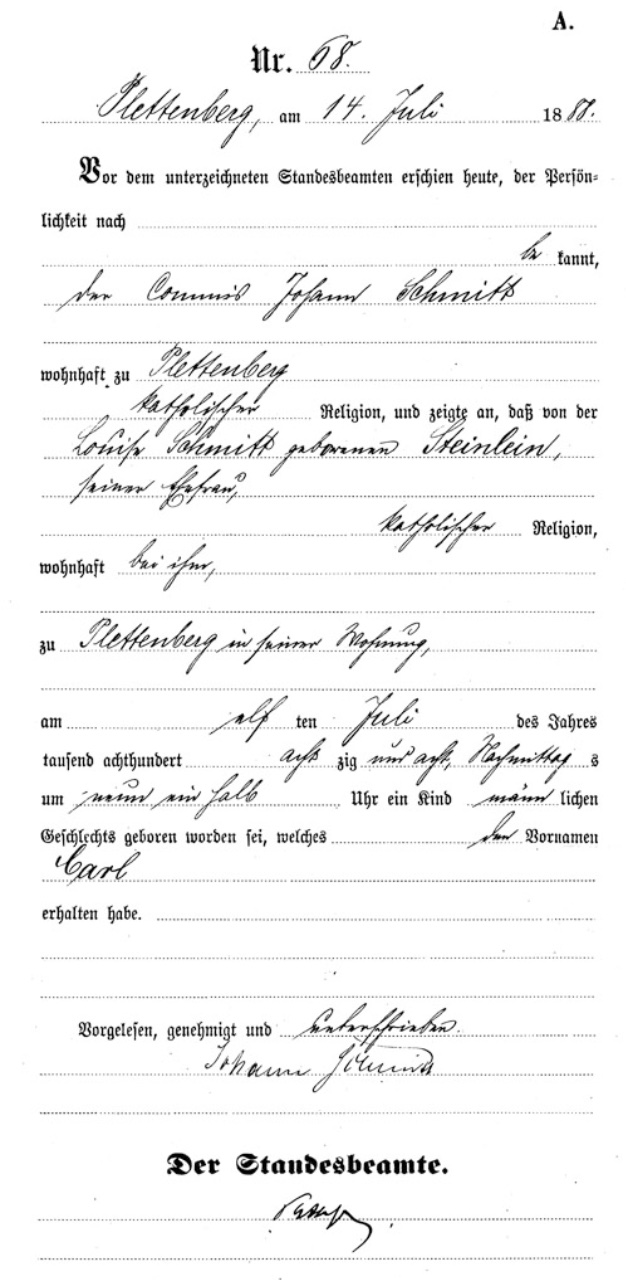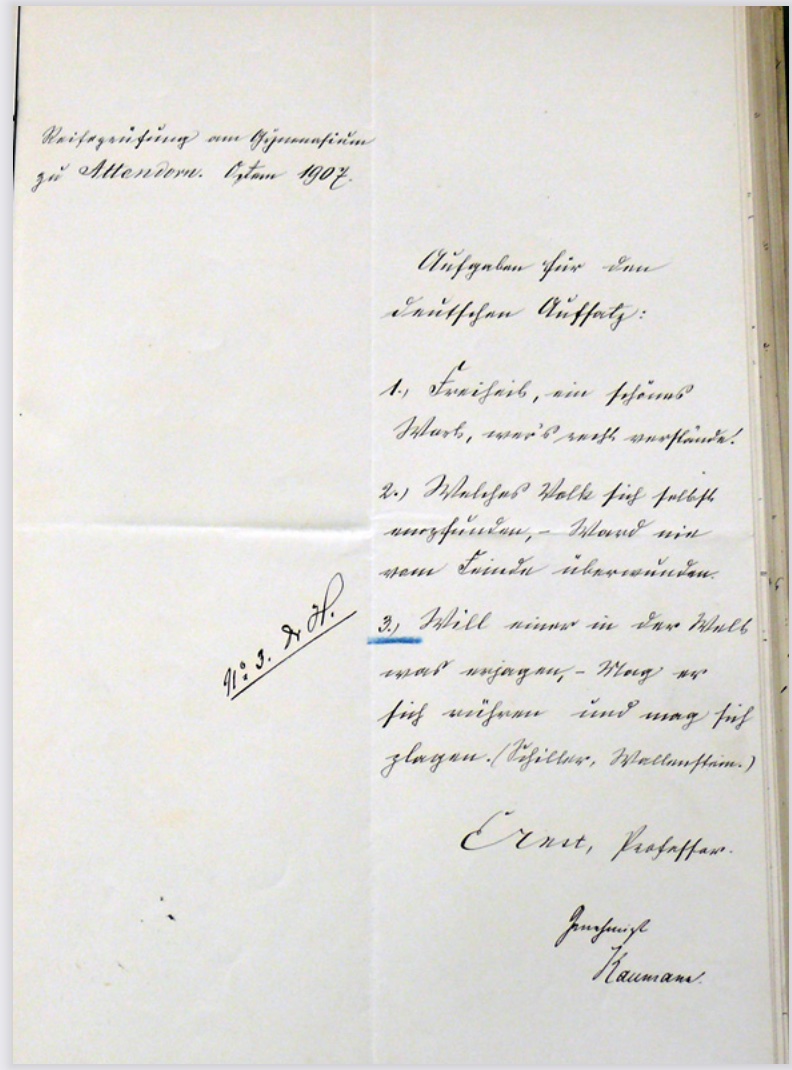Ego Documents
The society publishes documents from the estate of Carl Schmitt in loose succession, which allow insights into the thought and work processes of the scholar in direct and indirect form. What is special about them is that they are not calculated for staging and publicity. Self-perception and deeper personality structures are expressed in them, sometimes impulsively and undisguised.
Foremost among these are the diaries written in Gabelsberg shorthand, which have been transcribed for the period from 1912 to 1934 and published in five volumes (I. 1912-1915, II. 1915-1919, III. 1921-1924, IV. 1925-1929, V. 1930-1934). For the years of the Second World War the edition is in preparation. Examples with transcribed text can be found on a separate page.
The Glossarium, a largely clear-cut diary of thought for the years 1947 to 1958, was published as early as 1991, albeit incomplete; in 2015 this edition was replaced by a complete, cleaned-up and annotated one. On the history and status of the diary edition, see Jahrbuch für Internationale Germanistik (2020).


